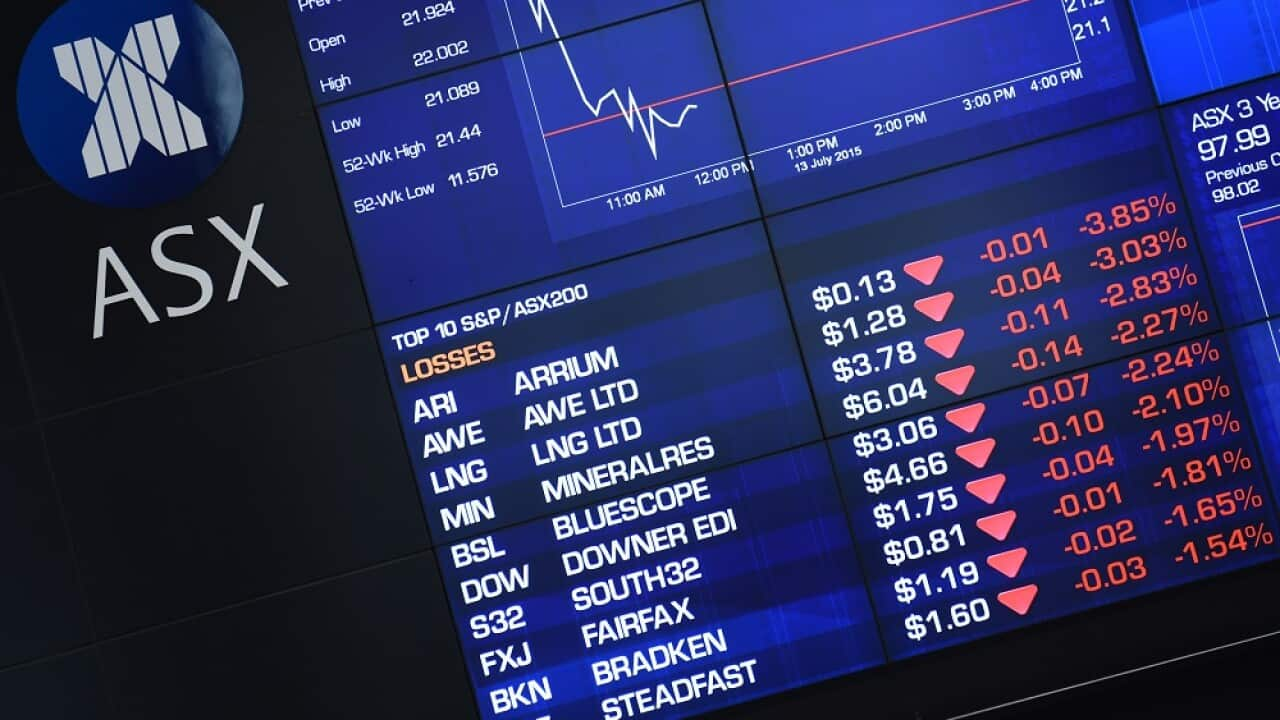A disastrous day on China's main share market has added to fears the world's second largest economy - and Australia's top trading partner - could be faltering.
The benchmark S&P/ASX 200 and All Ordinaries indices fell more than four per cent, their largest one-day drop since January 2009. They are now clinging to 5,000 points, levels not seen since July 2013.
The indices were close to breaching 6,000 points just four months ago.
The Australian dollar also hit a fresh six-year low of 72.01 US cents.
Australian Stock Report head of research Chris Conway warns the market falls could continue if it drops below 5,000 points.
"Right now, there is clearly some panic selling occurring and there is little in the way of technical support below the current market price," he said.
Wall Street and European markets plunged on Friday after Chinese manufacturing activity slumped to its lowest level since 2009.
The selling accelerated in China on Monday, with the Shanghai composite index shedding eight per cent and sending further shockwaves around the world.
IG market analyst Angus Nicholson says this is now a key moment for China - its equity markets are in free fall, its banking system is short of liquidity and forecasts of seven per cent economic growth are now looking ambitious.
"The most sensible way forward would seemingly involve further currency devaluation ... and stepped up fiscal stimulus," he said.
The Australian market's losses were felt across the board - the energy sector dropped 6.2 per cent, financials fell 4.6 per cent and retailers shed 3.5 per cent.
But CommSec chief economist Craig James said worries about China's economy are over-rated, with authorities there dealing with the "growing pains" of a maturing economy.
Rather than the beginning of a crisis, the market falls are a correction from highs reached earlier in 2015, he said.
"At present we would view the global share market correction as a correction we had to have - a situation that will be beneficial in injecting more value into markets," Mr James said.
"There are clearly risks, but the data indicates that US and European economies continue to recover; lower oil prices will serve to boost consumer and business spending; and Chinese authorities are trying a range a measures to maintain momentum in their economy."

